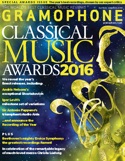Texte paru dans: / Appeared in: |
|
|
Outil de traduction (Très approximatif) |
|
|
Reviewer: Lindsay Kemp Kyung Wha Chung’s solo Bach has changed since she last recorded some more than 40 years ago, but then, whose hasn’t? In 1974 there was not a period violin version to be had (no one had dared), and her Decca disc of the Second Partita and Third Sonata (11/75) hinted little at the changes in fashion to come. But it would be impertinent, I suspect, to suggest that the development in Chung’s view of this music owes much to the early music movement; it feels more organic and personal than that, like the fruit of considerable accumulated experience and private contemplation gathered in the long build-up (including five years out injured, of course) before making her first recording of all the Sonatas and Partitas. The ‘romantic’ deep tone, passionate climaxes and long legato phrasing of that earlier release were not in any case particularly excessive for the time, projected as they were in wonderfully clean lines and confident momentum. In the new recording her sound, while still pretty gorgeous, is leaner and more incisive, yet there is no feeling of consciously applied ‘Baroque style’. Chung adds virtually no ornamentation of her own, and some moments that a ‘Baroque’ player might interpret as a written-out flourish she still takes rather literally. Articulation is varied more, but still less than might be expected these days. When coupled with a surprisingly relaxed use of dynamic contrast, this last can give a rather unrelenting feel, and indeed there are movements in which a certain doggedness (in the First Partita’s Doubles for instance) fails to charm. When Chung finds her mojo, however, the results really seem to come from within, and are irresistible: the gently forward-moving swing of the sarabandes and easy airborne rapture of the freer slow movements, the fizzing delineation of lines in the Third Sonata’s Allegro assai and, above all, the compelling trajectory of the Second Partita’s Chaconne, sent on its way with whiplash multiple-stops, are moments to savour.
Although there are signs here and
there of Chung fighting a tough technical battle in the studio, this release
will surely be cherished by her devotees and admired by others for its moments
of unique beauty. |
|




